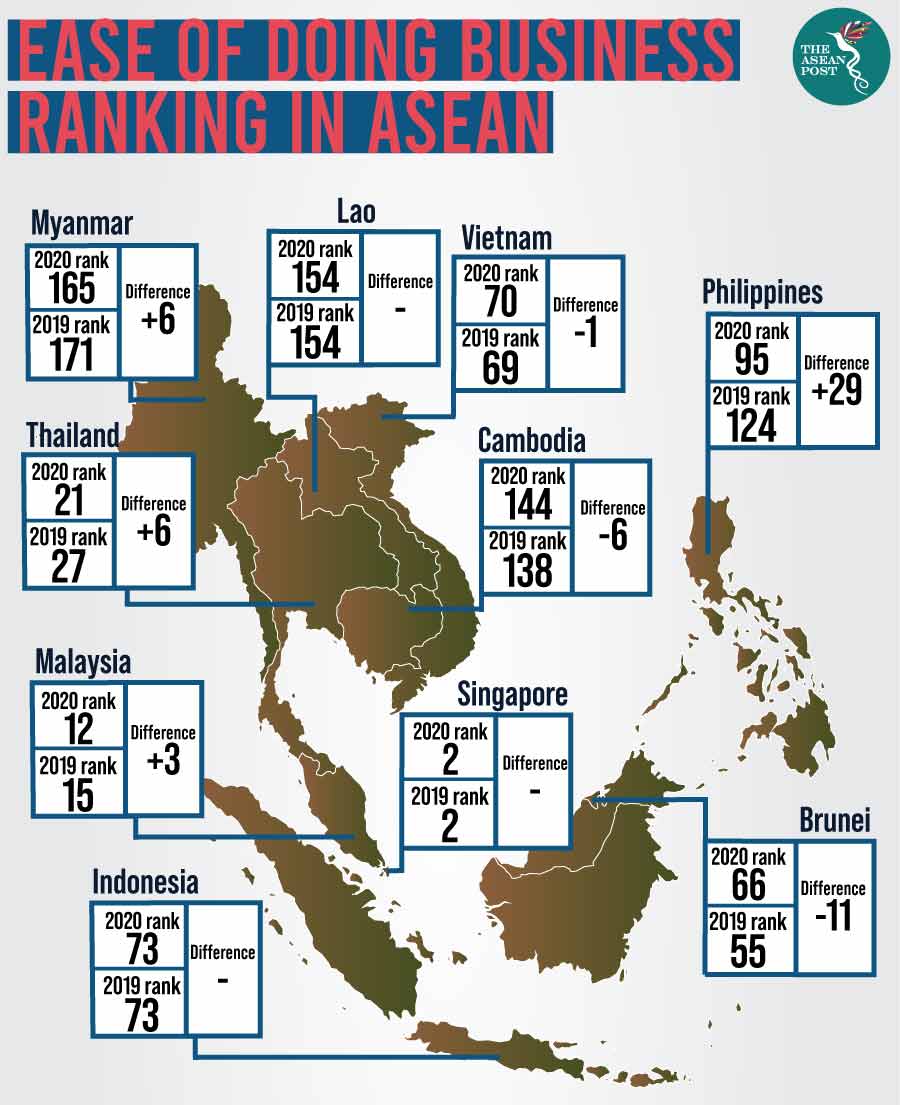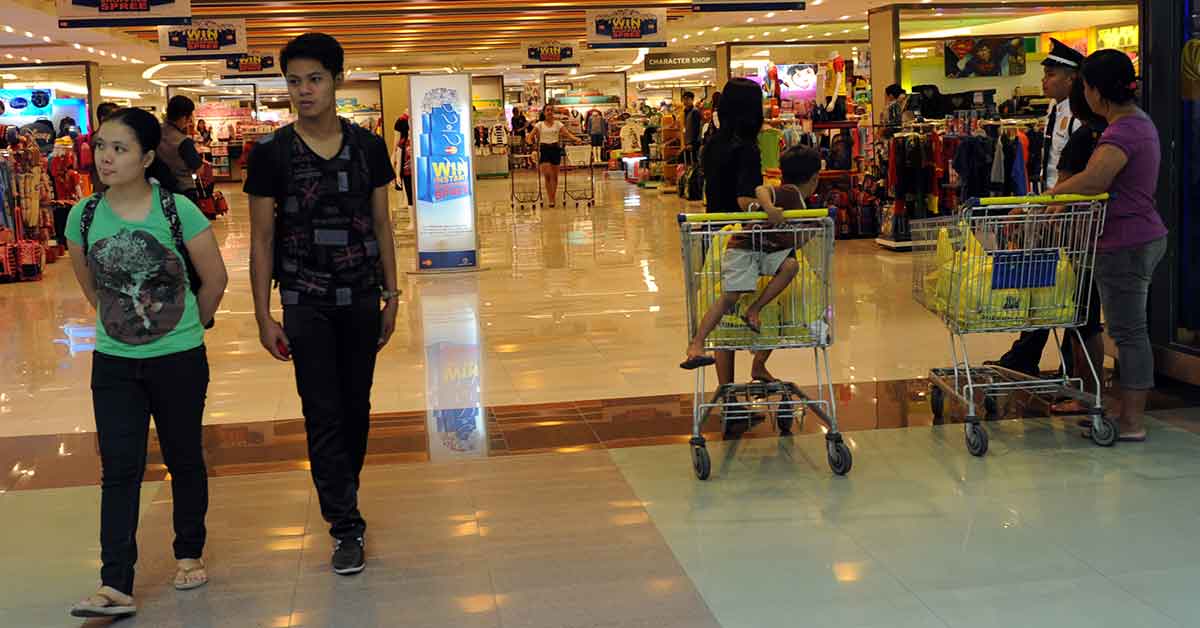Getting business done in the Philippines has just become a whole lot easier.
Jumping 29 spots in the World Bank’s Doing Business 2020 study – the biggest mover in ASEAN – the Philippines can attribute its rise from 124th to 95th to a variety of factors.
Thailand and Myanmar were Southeast Asia’s other big movers after both shifted up six spots, while Singapore remains the best Southeast Asian nation in second.
Released yesterday, the study is the 17th in an annual series that evaluates regulations enhancing or constraining business activity for small and medium-size enterprises, and the latest edition documents reforms implemented in 10 areas of business activity over a 12-month period ending 1 May 2019.
Business-friendly environments are associated with lower levels of poverty, and improved regulatory efficiency can stimulate entrepreneurship, startups, innovation, access to credit and investment.
Apart from making it easier for domestic companies to start businesses by abolishing the minimum capital requirement, dealing with construction permits is now less of a hassle in the Philippines after the country improved coordination within its ministries and streamlined the process for obtaining an occupancy certificate.
The report found that the Philippines has also strengthened minority investor protections by requiring greater disclosure of transactions with interested parties – all of which helped the country stand out in the World Bank’s assessment of 190 economies.

This year’s top-two remain unchanged, with New Zealand and Singapore topping the table followed by Hong Kong – which was fourth in 2019. Denmark, South Korea, United States, Georgia, United Kingdom, Norway and Sweden rounded off the top-10.
ASEAN countries featured strongly with three economies – Singapore (second), Malaysia (12th) and Thailand (21st) – placing in the top-25.
Scores were calculated based on reforms in 10 areas of business activity; starting a business, dealing with construction permits, getting electricity, registering property, getting credit, protecting minority investors, paying taxes, trading across borders, enforcing contracts and resolving insolvency.
The Malacanang Presidential Palace welcomed the World Bank’s report, with Presidential Communications Secretary Martin Andanar saying that the latest results “shows a strong vote of confidence towards President Rodrigo Duterte’s no-nonsense approach in wiping out red tape and removing opportunities for corruption.”
“We expect even better results in the coming years as the government remains committed to give the Filipino people an easier and more comfortable life, thanks to the President’s strong political will to undertake these landmark reforms,” he said in a statement.
Red tape
Reducing red tape has been one of Duterte’s key campaign promises, and among the landmark reforms Andanar was referring to include the Ease of Doing Business Act which the president signed in May 2018.
Calling the Anti-Red Tape Act of 2007 a “failure”, Duterte ushered in the Ease of Doing Business Act with the aim of introducing simplified requirements and streamlined procedures that will “finally spare our people from the intolerable waiting time and long lines in frontline government agencies.”
The law requires government agencies and government-owned and controlled corporations to act on applications for simple transactions within three working days, seven days for complex transactions and 20 working days for highly technical ones.
The Philippine Information Agency states that the law also requires all local government units to devise a unified business application form for the issuance of business permits, clearance, and other types of authorisations – as well as set-up a one-stop-shop to facilitate all business transactions.
The law also saw the creation of the Anti-Red Tape Authority (ARTA), which is under the Office of the President and is tasked with monitoring agencies’ compliance.
Last week, ARTA Director-General Jeremiah Belgica said three government agencies – the Food and Drug Administration, Land Transportation Franchising and Regulatory Board, and Land Registration Authority – need to “shape up” and improve their delivery of services as there was still a lot of red tapes hindering the speed of transactions.
While excessive regulations and burdensome rules may drive businesses away from the oversight of regulators and tax collectors into the shadows of the informal sector, rules which prevent economic activity from flourishing are also a turn-off for foreign investors.
As the World Bank noted, cumbersome red tape not only stifles individual businesses or investors but also an economy’s ability to grow sustainably. Economic freedom to do business goes hand in hand with economic development and a thriving private sector, which in turn underpin poverty elimination and the pursuit of shared prosperity.
Related articles:
Making the Philippines business-friendly
Duterte’s grand Build, Build, Build infrastructure plan faces a labour challenge
